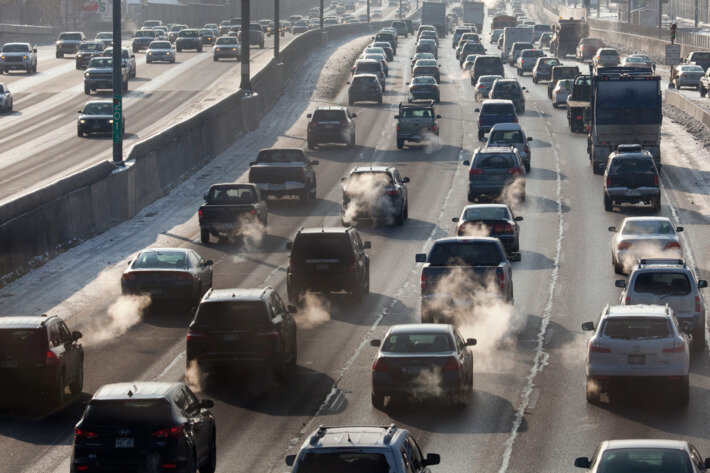
Pollution Exposure Rises While Driving With Open Windows
While we have already highlighted that air pollution results in more than 500,000 early deaths across the EU each year – with pollution from cars being a leading cause – new research from the University of Surrey reveals that even those in their cars might not be safe from the harmful chemicals they are emitting.
Their study investigated air pollution levels from commuters in 10 different global cities and found that driving with the windows down can increase the car’s occupants’ exposure to harmful pollution by as much as 80%.
However, during peak commuting hours this figure rose further still to over 90%.
Professor Prashant Kumar, Director of the Global Centre for Clean Air Research at the University of Surrey, said: “To be blunt, we need as many cars as possible off the road, or more green vehicles to reduce air pollution exposure. This is yet a distant dream in many ODA countries. Air-conditioned cars are unattainable for many poor and vulnerable commuters across the world, but our data is clear and coherent for all 10 participating cities.”
“We must now work with our global partners to make sure they have the information needed to put in place programmes, policies and strategies to protect the most vulnerable in our communities and find realistic solutions to these serious problems.”
Unseen dangers
While much of the study focused on developing nations where the cars are typically older and emissions are less regulated than in Ireland, it demonstrates the unseen dangers that we are exposing ourselves to on a daily basis while internal combustion engine (ICE) vehicles maintain on the road.
Sign our petition to introduce idling laws and awareness programmes in Ireland
This is particularly relevant given the recent heatwave – a result of human-induced climate change – that has swept across Ireland in the past couple of weeks, where a greater number of people have made car journeys to enjoy the good weather.
In fact, a separate 2019 study by The Real Urban Emissions initiative found that diesel car emissions of nitrogen oxides rose by 20-30% when temperatures rose above 30⁰C, meaning that air quality significantly drops in the summer months owing to vehicle emissions.
The authors the University of Surrey research recommend that people avoid driving at peak commute times and drive with the windows up, allowing the filters in the car’s ventilation system to remove some of the harmful chemicals.
Considering the consequences
The harmful impact of vehicle emissions is all too often overlooked as a fact of life, when we know the incredibly harmful dangers that impact public and environmental health.
However, this need not be an issue given that zero-emissions battery electric vehicles are now commonly available. These electric cars do not create any emissions themselves and will typically offset the emissions used to create them by the time they have been driven over 30,000km.
For those who have not yet made the switch to fully electric vehicles, avoiding engine idling is key to reducing the emissions of your vehicle while parked or stuck in traffic – particularly while near vulnerable people, such as outside schools.
Idling for more than 10 seconds uses more fuel and produces more CO2 emissions than turning off and restarting your engine – and if the average driver avoided idling for just 3 minutes every day of the year, CO2 emissions would be reduced by 1.4 million tonnes annually – the equivalent of taking 320,000 cars off the road.
Please consider signing our petition for the Irish government to introduce idling laws and awareness campaigns to help fight climate change and protect public health.
What To Read Next
How EVs Can Save Lives
Find out how EVs can reduce emissions to lower air pollution in Ireland, and how the switch to electric cars can save over 500,000 lives across the EU each year
Why Reopening Drive-Thrus Puts Irish Health At Risk
Find out why we’re calling for the government to block the re-opening of drive-thru restaurants in Ireland, and how this could save by 1.4 million tonnes of CO2 annually - equal to taking 320,000 cars off the road




